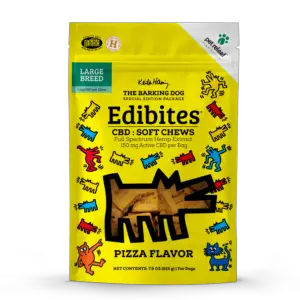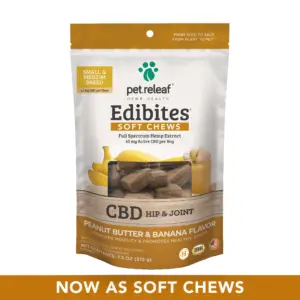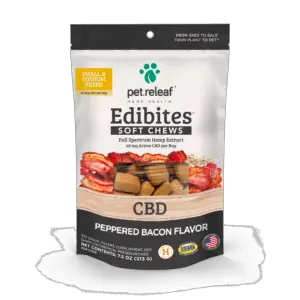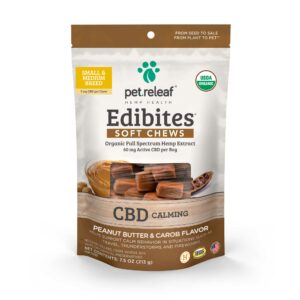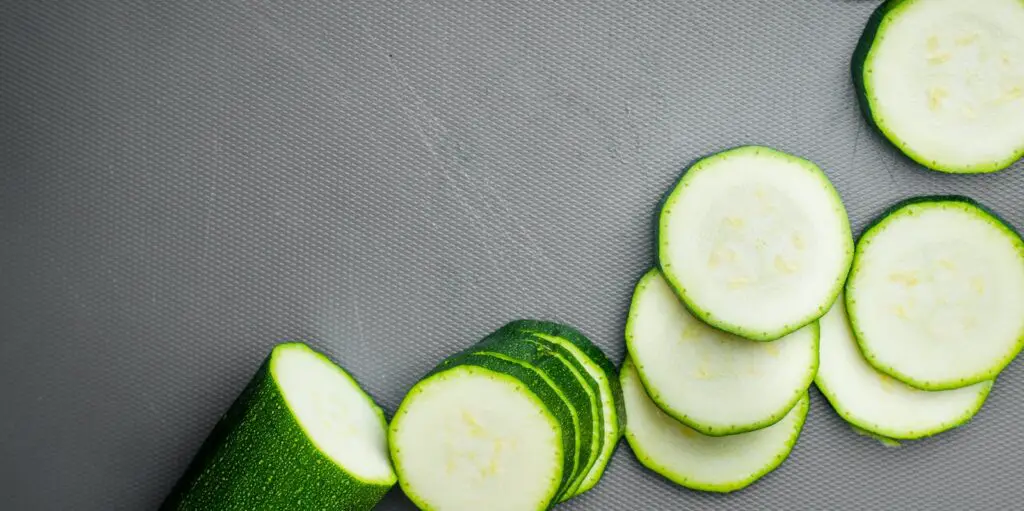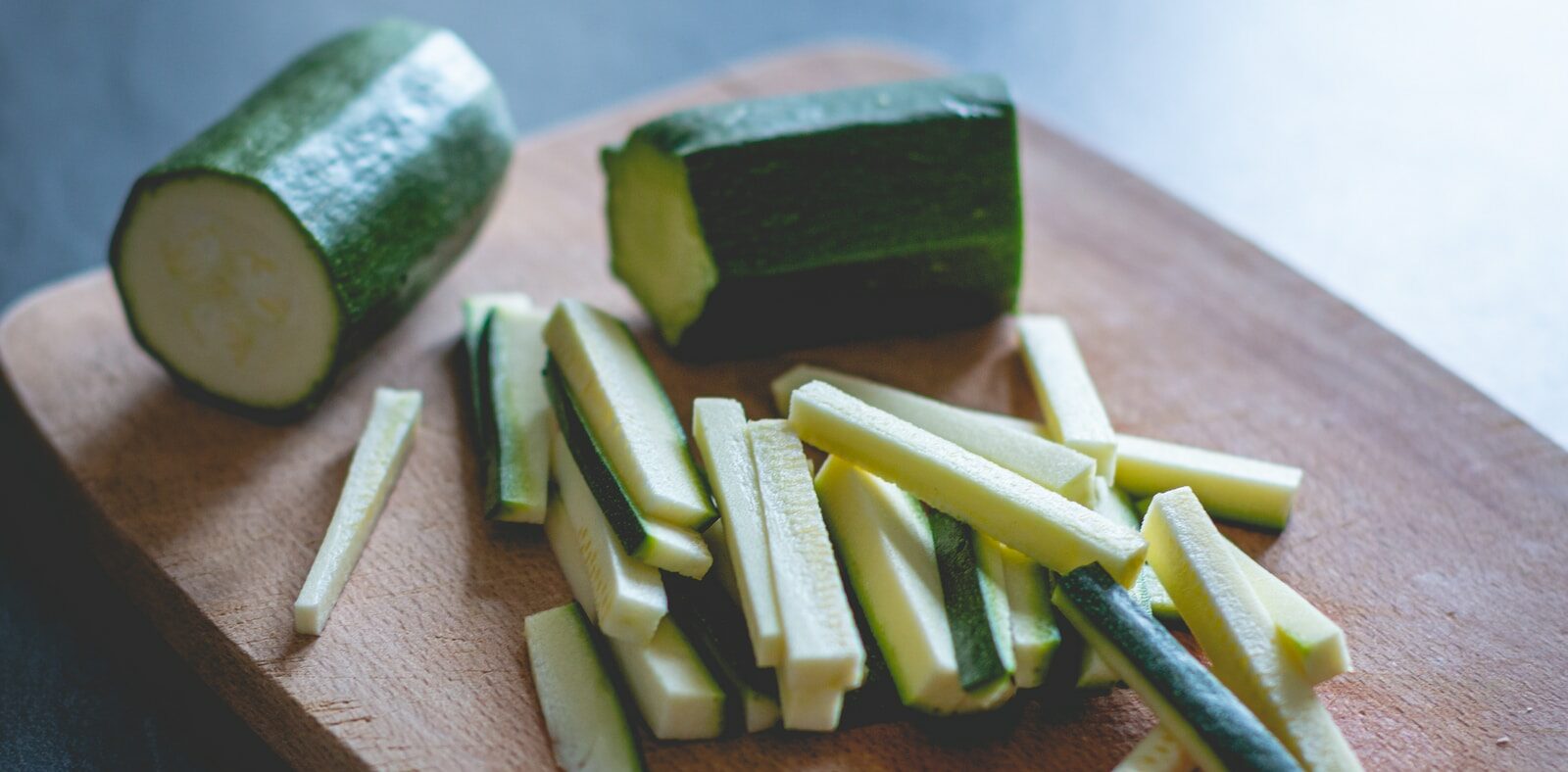
Key points
- Zucchinis are perfectly safe for dogs, and their consumption doesn’t cause any adverse effects. Also, almost all dogs tolerate this vegetable without experiencing allergic reactions.
- Zucchini can enrich your dog’s diet with vitamins and minerals and provide a lot of health benefits, including improving the pet’s digestion and having an antioxidative effect on its cells. Zucchinis can also be beneficial for overweight dogs because they are low in calories and fat.
- Don’t give your dog bitter zucchinis because these often contain cucurbitacins which are toxic to dogs. The symptoms of cucurbitacin poisoning in dogs include excessive salivation, nausea, vomiting, lethargy, diarrhea, and shock.
- You can give your dog zucchinis in a raw or cooked state, tailoring the portion size to your dog’s weight.
Zucchinis are one of the essential products for a healthy human diet. This vegetable can provide numerous health benefits, such as lowering blood sugar levels and improving eyesight. Many pet owners can’t help but wonder whether zucchinis have the same benefits for dogs as they do for humans.
Fun fact time: while most people are convinced that zucchini is a vegetable, it is actually a fruit! Because zucchini appears from a flower, it is technically a berry which is also known as courgette and belongs to the cucurbit family. While it has a high nutritional value, zucchini is a low-calorie product that can serve as a perfect snack both for you and your dog.
Table of Contents
Can I Give My Dog Zucchini?
The answer is yes, not only is zucchini safe for dogs, it’s actually one of the best vegetables to give to canines. It doesn’t cause any adverse side effects, almost all dogs tolerate it, and it provides a great number of health benefits for dogs. However, the fact that zucchini is healthy for dogs doesn’t mean that you should overfeed your pet with it. When giving any human foods to your dog, you should be aware of possible side effects and take all the necessary precautions. Keep reading this article to find out about the pros and cons of giving zucchini to dogs.
Zucchini Benefits For Dogs
Improves Digestion
Zucchini is packed with soluble and insoluble fiber, so this product can help your pet’s digestion and decrease its risk of constipation. The dog’s body ferments soluble fiber together with good bacteria to produce short-chain fatty acids (SCFAs) due to the fermentation process. This prevents several GI disorders, including colitis, leaky gut syndrome, and irritable bowel disease. Zucchini also contains water, which helps food move along the GI tracts and softens the pet’s stool.
Don’t remove the skin before feeding your dog zucchini, as it contains additional fiber and has the highest amount of antioxidants in the entire vegetable.
Contains A Lot Of Antioxidants
Zucchini contains a lot of carotenoids, which are natural antioxidants that lend plants their bright yellow, orange, or red colors. These antioxidants can prevent some types of cancer, control sugar and insulin levels in the blood, and improve general health by fighting free radicals.
Free radicals are molecules that cause rapid aging and DNA damage. Including foods high in antioxidants in your canine’s diet will reduce the damage caused by free radicals.
High Nutritional Value
If you want to enrich your dog’s diet with essential vitamins and minerals, then zucchini is the way to go. It is packed with vitamins A, B6, C, K, and minerals such as potassium, phosphorus, manganese, magnesium, zinc, and copper. Zucchini is especially valuable because manganese is usually hard to find in vegetables.
While your dog’s body produces vitamins C and K on its own, it can still benefit from additional sources of these nutrients. Vitamin C is an excellent antioxidant, and Vitamin K helps with blood clotting. Vitamin A is one of the essential vitamins for dogs, and raw zucchini contains more Vitamin A than cooked.
Helps With Weight Loss
 Zucchini is a low-calorie product (containing only 17 calories in one cup). Therefore it won’t have a significant impact on your dog’s daily intake of calories. It is also low in fat (only 1 gram per cup) and cholesterol. In addition, zucchini contains a lot of fiber which usually gives the sense of fullness and reduces hunger. Zucchini also has a low glycemic index, so it won’t increase your dog’s blood sugar level.
Zucchini is a low-calorie product (containing only 17 calories in one cup). Therefore it won’t have a significant impact on your dog’s daily intake of calories. It is also low in fat (only 1 gram per cup) and cholesterol. In addition, zucchini contains a lot of fiber which usually gives the sense of fullness and reduces hunger. Zucchini also has a low glycemic index, so it won’t increase your dog’s blood sugar level.
Keep in mind that vegetables should make up no more than 10% of a canine’s diet. And if you add zucchini or other green vegetables to your dog’s diet, it will not only provide nutritional benefits but can also help your dog to lose weight safely.
Drawbacks Of Feeding Zucchini To Your Dog
Zucchini is a dog-friendly product, but in some cases, it can taste bitter. Keep in mind that feeding bitter zucchinis to your dog can be dangerous and cause poisoning. This reaction can be caused by cucurbitacins – biochemicals present in plants that can be toxic to dogs. You can tell that a certain product contains a lot of cucurbitacins if it has a bitter taste. Usually, cucurbitacins are found in parts of vegetables that we don’t consume, such as roots, stems, and leaves. But if the plant itself becomes bitter, it automatically becomes toxic for dogs.
Avoid Bitter Zucchinis
Don’t give your dog bitter zucchinis, and try to stick with small and organic vegetables, because large zucchinis are more likely to be bitter. If you are not sure whether a zucchini you have on hand is good, give it a taste before feeding it to your dog.
Even if you are fairly certain that the vegetable you feed to your dog is safe, you should keep an eye out for symptoms of cucurbitacin poisoning in dogs. They include:
- excessive salivation
- lethargy
- nausea
- vomiting
- diarrhea
- disorientation
- shock
It’s important to note that some studies of cucurbitacins have found that these chemicals may be used as pharmaceutical drugs to fight cancer, inflammation, atherosclerosis, and diabetes in humans. However, you should never use bitter fruits and vegetables to treat your dog’s health conditions!
Raw vs. Cooked Zucchini
Dogs can eat both raw and cooked zucchini, so your choice will generally depend on your pet’s taste preferences. When zucchini is cooked, it tastes sweeter because it has a higher sugar content, but some dogs prefer eating raw zucchini as a snack. Give your canine the opportunity to choose and see what it likes more.
Can Dogs Eat Products Containing Zucchini?
Avoid giving your dog zucchini bread and other baked goods because they are high in calories, sugar, and fats. These foods can not only lead to obesity, but they can also upset your pet’s stomach. If you want to give your dog zucchini, then it’s better to go with a plain cooked or raw vegetable.
Can Dogs Eat Zucchini Plants?
Zucchini flowers and leaves are safe for dogs, and there’s no need to panic if your canine eats them. Zucchini flowers are edible and humans actually often deep fry them to make a tasty appetizer.
Feeding Zucchini To A Dog
Zucchinis taste their best when they are small and young. If you buy them at the store, make sure they are not squishy. Try to gradually introduce this product into your dog’s diet, starting with a small piece around the size of a piece of its kibble and observe the pet’s reaction. If you don’t see any side effects such as diarrhea, loss of appetite, vomiting, or itchiness after 24 hours, then give a little more zucchini to your dog. And if after 24 hours your dog still feels fine, it means that the animal tolerates this vegetable well.
Take time to prepare the product properly before giving it to your dog. First, get rid of the stem, then blend, steam, boil, or simmer it to make it easier to digest and chop into small pieces. This will increase the product’s bioavailability and make it easier for the dog to chew and swallow. You can add zucchini to your dog’s meal or give it as a snack.
If you want to bake the vegetable, it’s best not to use oil and seasonings. Also, ensure that you don’t cook zucchini with vegetables like onions and garlic (fresh, dry, powdered, etc.) because they are highly toxic to dogs.
The recommended portion of zucchini for dogs is based on their size:
- 1-2 tsp daily for small dogs
- 2-3 tsp daily for medium dogs
- 1-2 Tbsp daily for large dogs
Remember to give your pet only moderate amounts of zucchini, as overfeeding your dog with this vegetable won’t do it any good. It’s not recommended to feed a whole zucchini to a dog at once.
Zucchini can also be found as an ingredient in certain’ biologically appropriate’-style dog foods, but it’s less common in dry kibble or canned food since the vegetable itself is expensive when bought out of season.
FAQ
Can dogs eat zucchini with skin?
Yes, zucchini skin is safe and even beneficial for dogs, but it may cause stomach upset in some animals.
How do you make zucchini for dogs?
You can steam or roast zucchini and mix it with your dog’s food. But don’t add any seasonings, onion, or garlic while cooking. You can also give pieces of fresh zucchini to your dog as a treat.
Does zucchini cause diarrhea in dogs?
Yes, if you give your dog zucchini that still contains skin and seeds. Also, keep in mind that raw zucchini may cause indigestion in some dogs and cause vomiting or diarrhea.
Can dogs have zucchini and cheese?
While zucchini and cheese generally will not cause any acute negative reaction in your dog, you should avoid giving your pet zucchini covered in cheese. Instead, give the vegetable in its plain or cooked form. Don’t add any flavors, seasonings, or oil while cooking zucchini for your dog since these additional ingredients may be dangerous or even toxic to the pet.

